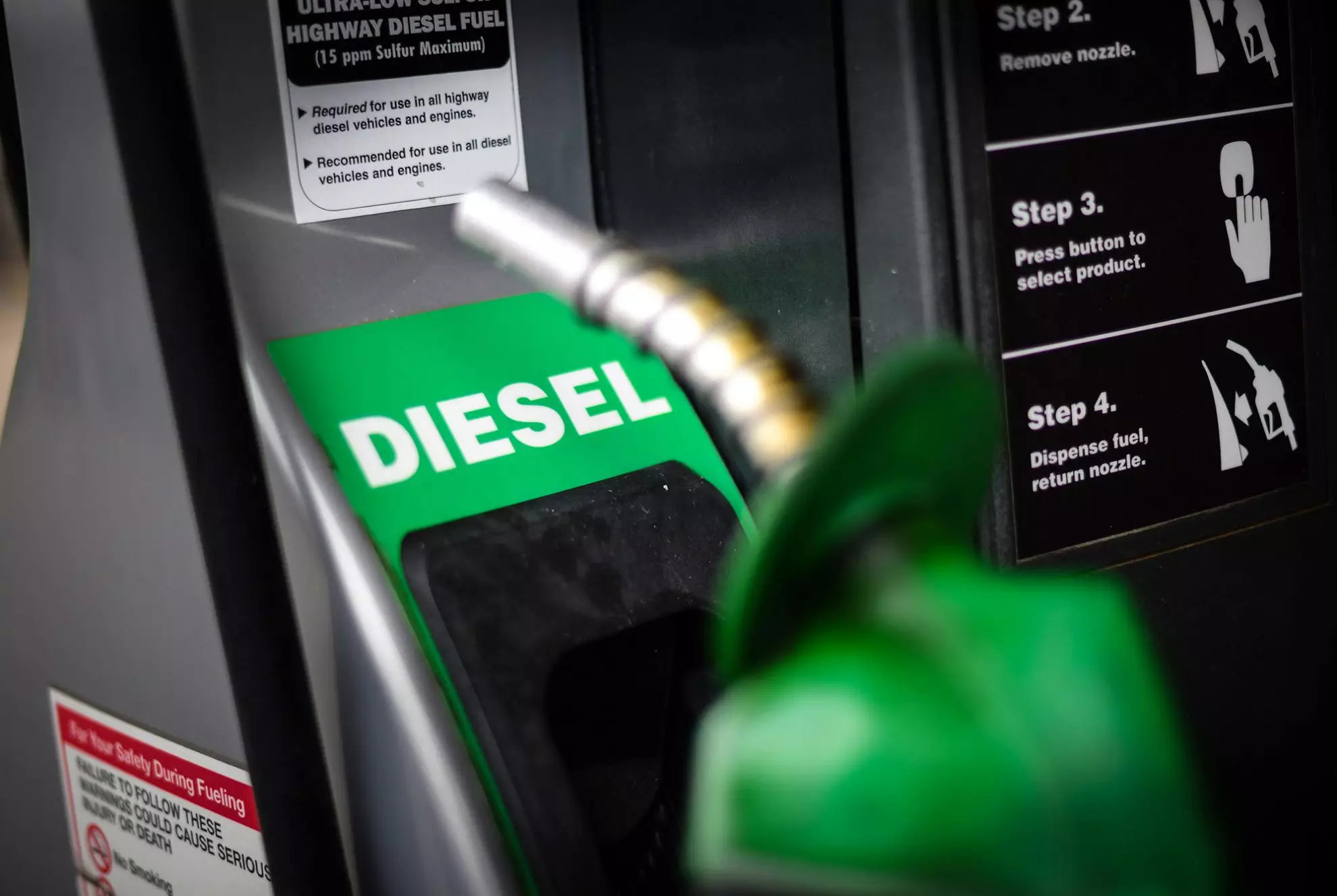Diesel engines, which used to be the best-selling type of engines on the European continent, are quickly falling out of choice for European motorists. It was also a consequence of the 2015 scandal, which started in an automobile group and quickly affected the others, eventually turning into a delicate political issue.
The numbers, advanced by JATO Dynamics, are clear — the fall in diesel car sales in Europe was considerable in 2017.
Falling Diesel Engines
The sale of passenger cars in Europe grew 3.1% in 2017 , reaching 15.6 million units, but, on the other hand, cars with diesel engines saw their sales fall 7.9% compared to 2016 — a significant drop. In total, 6.77 million diesel cars were sold, a volume that had not been seen since 2013, when Europe was deeply immersed in the crisis that began years before.
The market share for Diesel engines was 43.8% , having to go back to 2003 to find a figure as low as this, at a time when the Diesels were beginning to gain momentum. The share has been declining since 2015, the year Dieselgate went public. Between 2010-2015, it was always above 50%, with the peak occurring in 2011, when it reached 55%.

Portuguese still fans of Diesel
Naturally, if we look at the data country by country, there was also a decrease in the shares of Diesel engines. According to JATO Dynamics, in 26 European countries, only one, Latvia, saw Diesel's share rise in 2017.But despite the downward trend, there are countries where diesel engines are still the dominant force in the market. Portugal is one of those countries, being the second European country where the Diesel share is higher — in 2017, it reached around 61% (4% less than in 2016). Ahead of Portugal, only Ireland, where Diesel engines accounted for 65% of sales in the past year.
And the brands?
Obviously, the brands also sold less Diesel, with a corresponding drop in their penetration share. Exception made to Fiat, where it rose 0.2% compared to 2016. However, there are brands that continue to be excessively dependent on the sale of Diesel engines, which represents a high risk, considering the changes taking place in the market. More than 90% of Land Rover's sales correspond to diesel engines, followed by Jeep and Volvo with values approaching 80%. On the other side of the table, we find Toyota and Suzuki, where diesel engines account for just over 5% of their total sales.
sharp falls
The differences are more dramatic in other cases, especially when we analyze the trajectory of sales since 2011. In Norway, three out of four cars sold (75%) were Diesel in 2011, but after the country invested heavily in electrification, in 2017 the quota it is now 23 percent, or slightly less than one in four cars sold.
Other countries that used to have shares above 60% in 2011 have also seen sharp declines:
- Belgium — 75% (2011) to 46% (2017)
- Lithuania — 63% to 35%
- France — 72% to 47%
- Luxembourg — 77% to 54%
- Spain — 70% to 49%
- Sweden — 61% to 50%
the Italian exception
However, Italy has resisted change more than any other country. There was a slight 1% drop in share compared to 2016, but the 56.5% registered in 2017 is higher than the 55% in 2011. Why do Diesels persist in Italy?First, Diesel has not been demonized like in other countries. The word “diesel” rarely appears in speeches referring to the banning of internal combustion engines in cities. Second, gasoline is too expensive — it's among the most expensive in Europe — so it's not as attractive an alternative as in other markets.
Who is taking over from Diesel?
If the market continues to grow but diesel engine sales are falling, who is taking your place? They are neither hybrids nor electric ones, despite being the fastest growing in the market — in 2017 their sales increased 46.2%, but it only translates into a total volume of 738,300 units, which is equivalent to a share 4.8% market share. If we separate the electric ones, their share is only 0.9%, a value that is still excessively low.
That leaves gasoline engines — these are truly taking over from Diesels. In 2017 sales of gasoline engines increased by 10.9% , in line with the growth seen in 2015 and 2016. The difference is that this year they greatly surpassed the market growth and the share itself jumped considerably from 3.6%, reaching 50.1%.
More gasoline, more CO2
The increase seen in the sale of gasoline engines is already causing problems in meeting the CO2 reduction targets for both manufacturers and countries, which signed agreements with ambitious targets for reducing these.
Analysts are unanimous — by the end of the decade they predict that the market share of diesel engines will continue to decline by the end of the decade.
